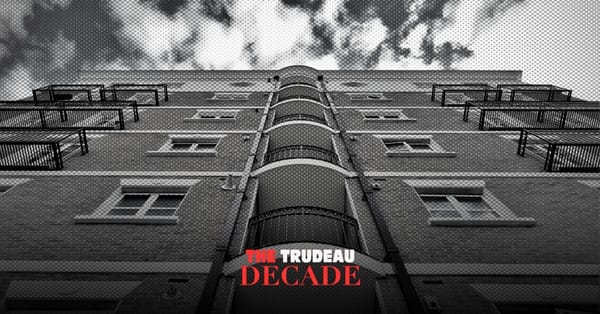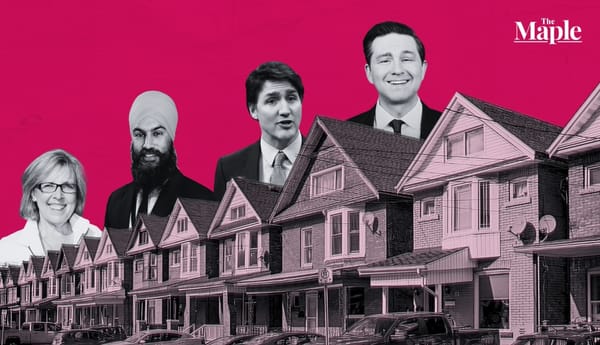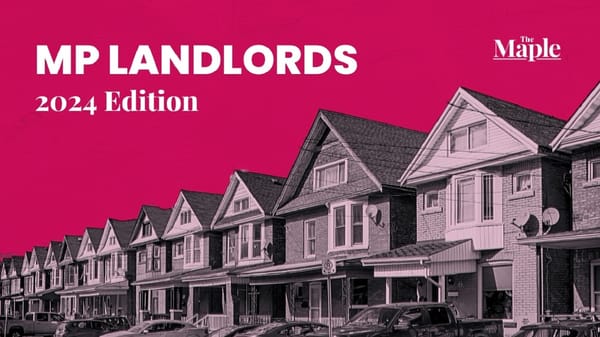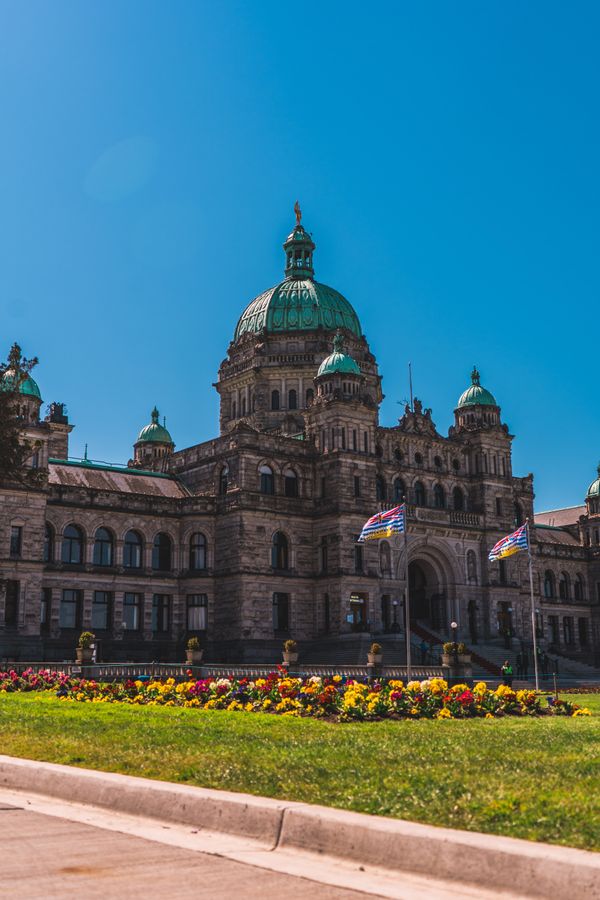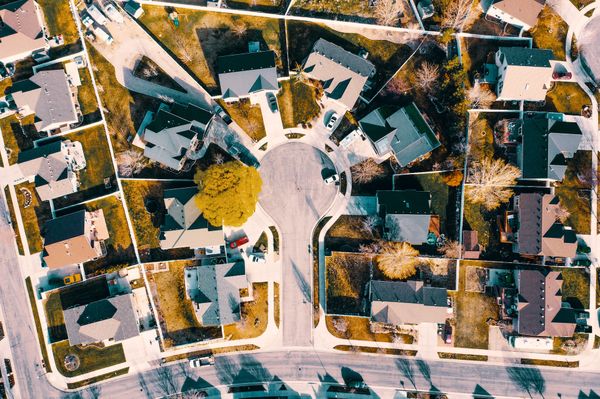In the midst of a worsening pandemic, Ontario Premier Doug Ford’s government has empowered landlords and police to impose even greater levels of discipline and hardship on the lives of working-class people. This has come in the form of new authoritarian measures, which have dangerous implications for tenant rights generally and for working-class organizing in particular.
Here’s a brief overview of how Ford’s policies have harmed working-class renters throughout this pandemic, the most recent attempts to criminalize renters and tenant organizing, and a look at how tenants are responding to new conditions.
In March 2020, at the beginning of the pandemic, Ford sought to avoid public outcry against his government’s pro-landlord agenda by temporarily pausing most evictions. Meanwhile his government was taking steps to make it easier for landlords to evict their tenants when the pause ended.
For example, in July, Ford’s government passed legislation that weakened tenant protections and would speed up the legal eviction process. Bill 184 removed the ability of tenants to defend against eviction by raising tenant right issues, such as disrepair, at their hearing unless they submitted evidence in advance. The new law also gave landlords the ability to pressure tenants into onerous terms of rent repayment, and then apply to the Landlord and Tenant Board (LTB) for an eviction order without a hearing if ever the tenant was a day late or a dollar short on the prescribed installments.
On July 30, the LTB announced it would move all hearings to online video conferences. Tribunals Ontario initially cited public health precautions as the justification for this move. Online evictions effectively allow adjudicators to evict tenants quicker than ever before.
As such, by August 1 last year, when evictions resumed, the groundwork had been laid for a mass eviction blitz. In November and December 2020 alone the LTB held nearly 12,000 eviction hearings, an increase of 20 per cent compared to the same period in 2019. In some cases, tenants facing eviction had their hearings last less than a minute. This March, Tribunals Ontario announced that virtual hearings are the permanent plan going forward.
The government has issued a few emergency orders this year to suspend sheriff removals of tenants. For example, in Toronto and Peel sheriff removals were suspended from January 13 to March 8, and again beginning on April 8. Yet all the while the LTB has continued to churn out eviction orders against hundreds of renter households each week. This is despite the fact that researches in the United States have found that the removal of eviction moratoria correlates with rises in COVID-19 infections and deaths.
Essentially, while Ford temporarily paused evictions and sheriff enforcements of them at various points throughout the pandemic thus far, everything else his government has done has been aimed at making it easier for landlords to evict tenants going forward.
Things have only gotten worse in the past couple weeks.
On April 19, the Ontario government brought forward for second reading Bill 276, the Supporting Recovery and Competitiveness Act. Buried in the omnibus legislation is an amendment to the Statutory Powers Procedure Act that sets fines of up to $25,000 for the recording and sharing of online tribunal hearing proceedings.
Despite the LTB being a quasi-judicial tribunal which falls under the open-court principle, the government wants to levy massive fines against groups that have observed and recorded eviction hearings, and shared audio and video clips from the hearings on social media, exposing what the government has tried to hide behind closed, virtual doors.
Tenants have documented how LTB adjudicators routinely disregard tenants’ difficult circumstances which prevent them from being able to repay the rent they owe in a short period of time. In one video, the LTB adjudicator presses a tenant’s child to act as their interpreter and to agree to terms of rent repayment on their parent’s behalf. In another documented case, the adjudicator orders eviction against a deceased tenant, ignoring the landlord’s attempts to explain that the tenant had died.
On April 16, meanwhile, Ford announced further restrictions on gatherings and outdoor spaces, and increased police powers. While these directives will not suppress COVID-19 in working-class districts or keep people in their homes, landlords who are intent on cracking down on tenant organizing will only be further emboldened by them.
Landlords have already filed for eviction against tenants on the basis of violating COVID-19 safety protocols, in one case for having guests under lockdown. Tenants who have been organizing with their neighbours will also likely face police harassment and fines of up to $1,000 for holding outdoor meetings, even though participants adhere to social distancing and use PPE.
The government has effectively gifted landlords new means with which to advance their goals of breaking working-class organizing initiative, securing vacant units and collecting rents, in that order.
Some working-class people are fighting back.
In March, three organizers who are tenants of the high-rise building at 55 Triller Avenue in Toronto’s Parkdale neighbourhood received eviction notices alleging they committed illegal acts. Their crime? Delivering a letter to the property management office which outlined their concerns with unsafe conditions at the building after a major power outage resulted in hundreds of tenants going without heat and hot water for days on end.
While Canadian property giant Starlight Investments, which owns the building, has high-priced lawyers and political connections on its side, Parkdale tenants have found strength in numbers. On March 27, more than 200 people attended a rally at 55 Triller called by Parkdale Organize to demand Starlight drop the evictions. The following weekend, tenants visited the Forest Hill mansion of Starlight president Daniel Drimmer, before marching to nearby apartment buildings owned by Starlight to spread the word about their struggle to other tenants.
Tenants at 55 Triller have maintained weekly outdoor tabling in front of their building as they continue to build support among their neighbours. On April 10, as tenants painted banners on the front lawn, two Toronto Police Services vehicles arrived after Starlight called the police.
On April 2, meanwhile, People’s Defence Toronto mobilized in support of a tenant who had earlier been removed by the sheriff from his apartment. The landlord, a not-for-profit organization mandated to provide low-income housing, had filed for eviction against a single father with young children after he fell behind on his rent payments. The landlord then refused to call off the sheriff despite the tenant coming up with the rent he owed and informing the landlord he was willing to pay.
When the tenant was allowed to return to his unit to gather his belongings, his supporters arrived in numbers and demanded the landlord regularize his tenancy. In response, the landlord called the police. At least 26 Toronto Police Services vehicles attended the call.
A standoff between tenants and police ensued, in which two tenants were briefly detained before being released without charges. A few days later, the police and the landlord were forced to concede the issue and agreed to the tenant’s demand to remain in his home.
Throughout the pandemic, working-class people in Toronto have demonstrated that the only way we can effectively challenge evictions in this time of crisis is by organizing. Capitulating to landlord and police power at this critical moment would have devastating consequences, and is not an option.
Working-class people must continue to struggle against evictions alongside our neighbours in our buildings and districts, or else concede all safety and dignity we’ve afforded ourselves through self-organization.


